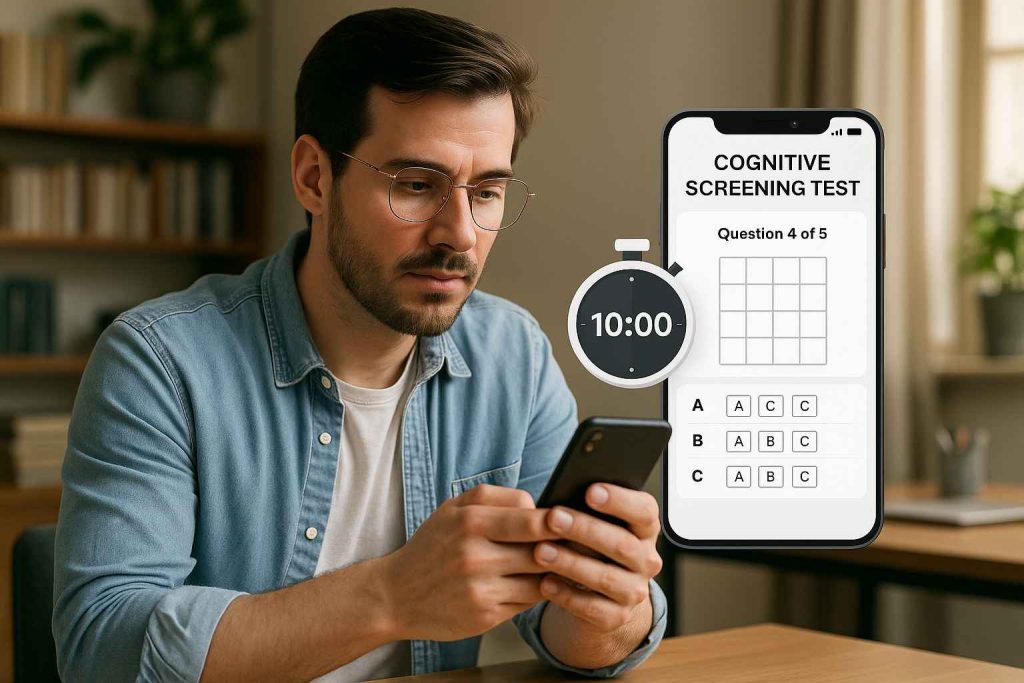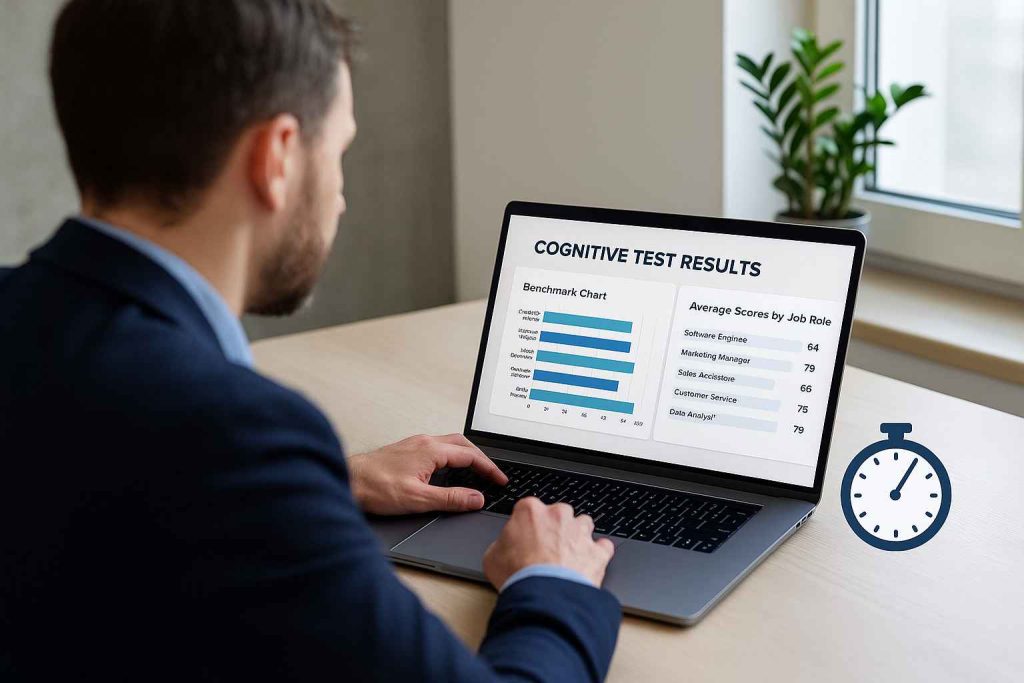Hiring takes time. But what if you could predict a candidate’s problem-solving ability, attention to detail, and learning speed—in just a few minutes?
That’s where quick cognitive assessments come in.
They’re short, sharp, and incredibly powerful when used right. Whether you’re screening 100 applicants or narrowing down your final shortlist, these tools can save time while improving hiring accuracy.
In this guide, we’ll unpack:
- What quick cognitive assessments actually are
- When you should (and shouldn’t) use them
- How they differ from longer, in-depth tests
- What platforms or tools are best for quick screening
- How to interpret and act on the results
Let’s get into it.
What Are Quick Cognitive Assessments?

Quick cognitive assessments are short tests (usually 5–15 minutes) designed to evaluate core mental skills such as:
| Cognitive Skill | What It Measures |
| Logical Reasoning | Ability to identify patterns and sequences |
| Verbal Reasoning | Understanding and processing written info |
| Numerical Ability | Speed and accuracy with numbers |
| Attention to Detail | Accuracy in detecting errors and patterns |
| Memory Recall | Retaining and retrieving information fast |
They’re not just a shortcut—they’re a smart way to assess job-critical thinking skills upfront.
When Should You Use a Quick Cognitive Assessment?
The best time to use these tests is at the early stage of your hiring funnel, right after resume screening (or sometimes instead of it).
Ideal use cases include:
- High-volume hiring: Need to screen 200+ applicants? A 10-minute test can instantly highlight top thinkers.
- Shortlisting: Narrowing a group of promising candidates to move into interviews.
- Pre-phone screen: Want to avoid wasting time on underqualified candidates? Use a quick test first.
- Intern or entry-level roles: Where job experience may be minimal but raw cognitive ability matters.
📌 Related: How to Test Cognitive Skills for Employment
When Not to Use Them
Quick assessments are great, but they’re not always enough.
Avoid using them as the only decision-maker when:
- Hiring for senior, strategic roles
- You’re testing highly specific skills (e.g., software design, financial modeling)
- You need deep insights into personality or behavioral fit
In those cases, consider combining them with:
- In-depth cognitive behavioral assessments
- Structured interviews
- Personality assessments
Benefits of Quick Cognitive Tests in Hiring

| Benefit | Why It Matters |
| Saves Time | No more long interviews with misaligned candidates |
| Scalable | Great for high-volume hiring and screening |
| Fair & Objective | Removes bias by focusing on performance, not background |
| Predicts Job Success | Strong link to on-the-job learning and problem-solving |
| Easy to Implement | Most platforms offer plug-and-play assessments |
Choosing the Right Assessment Tool
Look for tools that are:
✅ Fast (5–15 mins)
✅ Mobile-friendly
✅ Scientifically validated
✅ Customizable for your industry
✅ Integrated with your ATS or hiring platform
Popular Tools to Explore:
| Tool | Strengths |
| AssessGrow | Custom, job-relevant short cognitive assessments |
| HireVue | Video + cognitive test integration |
| Wonderlic | Quick decision-making and learning assessments |
| TestGorilla | Wide variety of short skill and cognitive tests |
Tips for Using Quick Cognitive Tests Effectively

- Set expectations early: Let candidates know what to expect and how long it’ll take.
- Automate it: Integrate into your job application or send it right after applying.
- Don’t over-rely: Use scores as one input—not the only input.
- Benchmark your results: Compare against average scores by role or industry.
Related Resources
- Top Cognitive Assessment Tools for Hiring Success
- Cognitive Ability Test Questions and Answers (PDF)
- Cognitive Assessment Scale
- Understanding Cognitive Assessment Scores
- Short Cognitive Assessments
Explore the full guide:
👉 What Is Cognitive Ability? Why Is It Important to Test Cognitive Ability Skills for Employment
FAQ
Q: How long do quick cognitive assessments take?
A: Most take between 5–15 minutes. They’re designed to fit into your early-stage screening without slowing down hiring.
Q: Are quick assessments reliable?
A: Yes—if the tool is validated and used properly. They offer strong predictive value when assessing thinking speed, attention, and adaptability.
Q: Should I use these tests for every job role?
A: Not always. They’re most useful for entry- and mid-level roles. For senior hires, pair them with deeper tests and interviews.
Q: Can I use them with remote candidates?
A: Absolutely. In fact, they’re perfect for assessing remote candidates because they’re digital and scalable.
Final Thoughts
Quick cognitive assessments aren’t just about saving time—they’re about making smarter hiring decisions, faster.
They give you a real glimpse into how someone thinks, learns, and solves problems—without the fluff. When used at the right stage and for the right roles, they can transform your hiring pipeline.
Whether you’re hiring remotely, scaling fast, or trying to reduce bias, short assessments are your best friend. Just make sure you’re using the right tool, interpreting results fairly, and keeping the candidate experience smooth.
Ready to streamline your hiring?
Check out AssessGrow’s fast, reliable Cognitive Ability Tests for smarter talent decisions.


